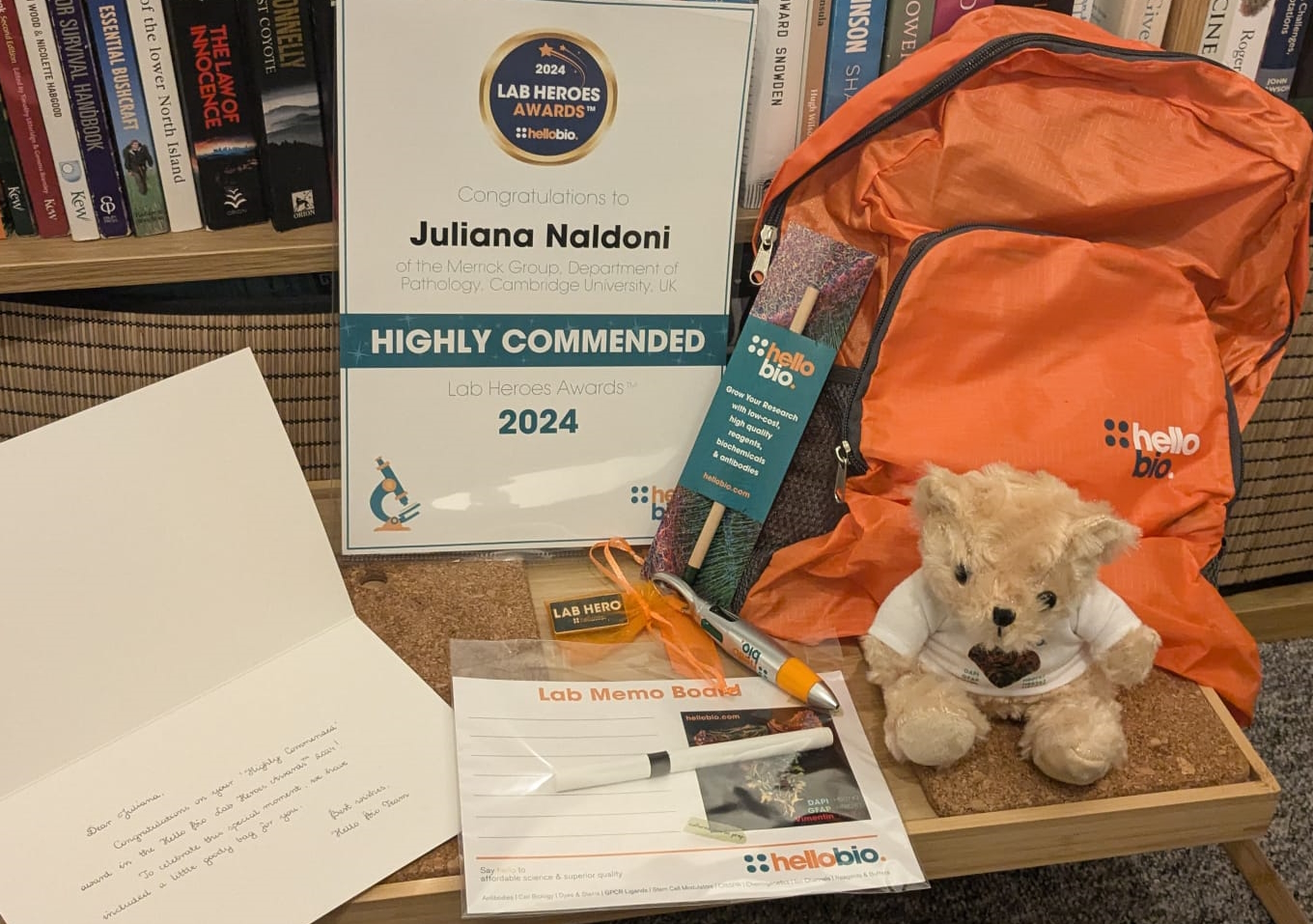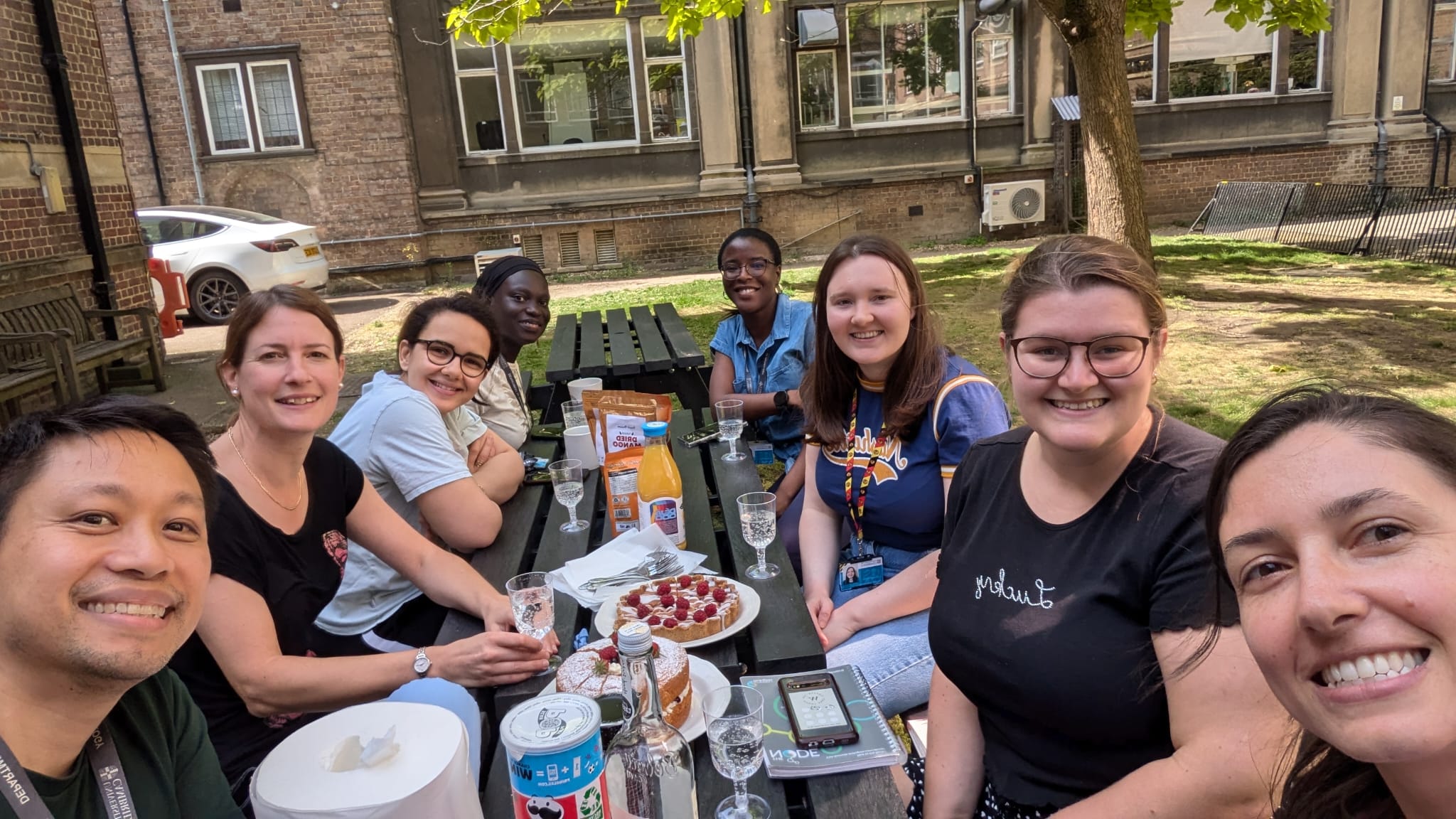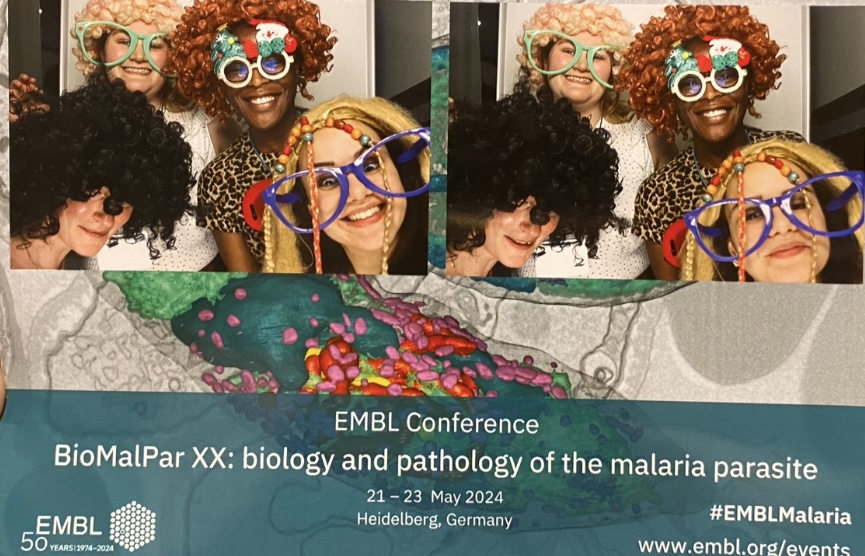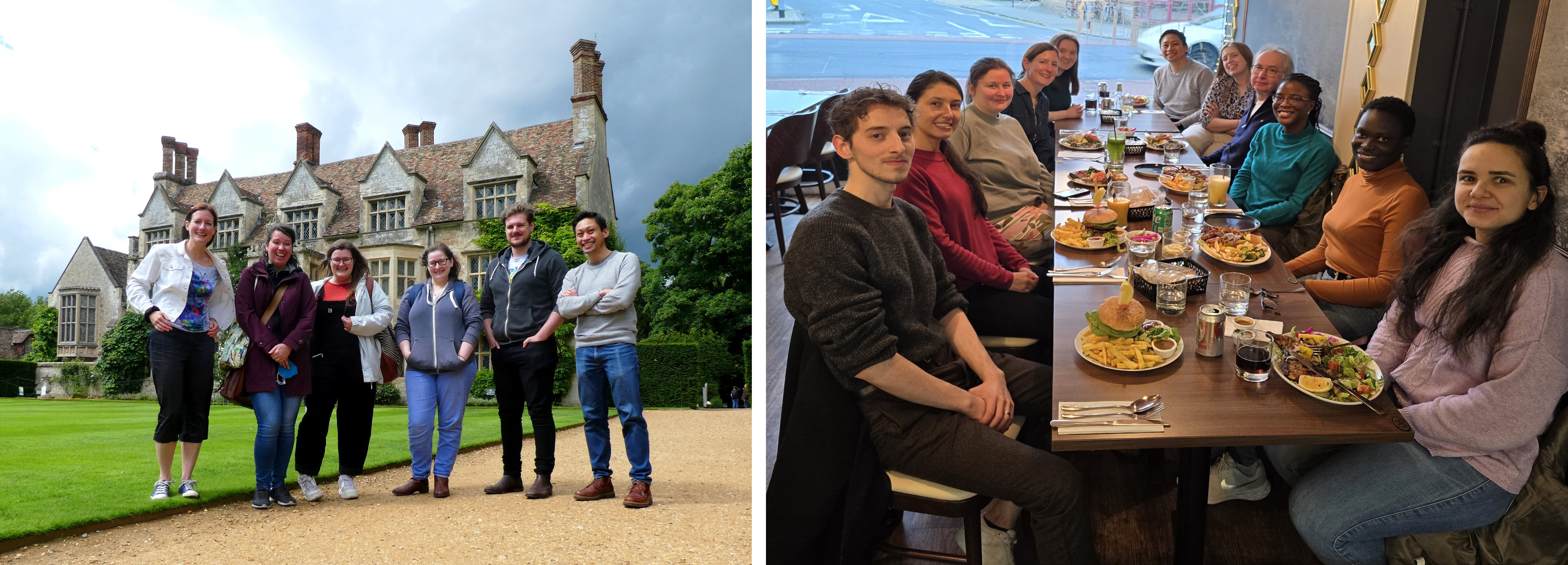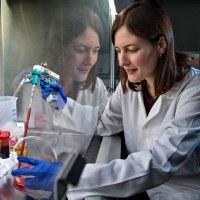Biography
My first degree was in Natural Sciences at Cambridge, during which time I also participated in the Cold Spring Harbor undergraduate research program in the USA. I then completed a PhD in Cell Biology at Cancer Research UK, before moving to the Harvard School of Public Health where I held a Charles H. Hood postdoctoral fellowship and studied the epigenetic control of virulence genes in malaria parasites. During my postdoc I also conducted a field study at the MRC Institute in The Gambia, investigating clinical phenotypes and the expression of virulence genes in patients with malaria.
Upon returning to the UK I worked briefly as a sub-editor at Nature, then joined the faculty at Keele University where I was a Lecturer and subsequently a Senior Lecturer until spring of 2018. At Keele I established a research group within the Centre for Applied Entomology and Parasitology (CAEP), gained my Postgraduate Certificate in Teaching & Learning in Higher Education and became a Fellow of the Higher Education Academy. I taught undergraduate and graduate courses in parasitology and other areas and was awarded a 'superb supervisor' teaching award by the SU. I sat on the Council of the British Society for Parasitology from 2012 to 2018, serving as the Hon. Communications Secretary 2015-2018.
In 2018 I moved to Cambridge as an Associate Professor, and in 2024 I became Professor of Parasitology. At Cambridge I organise the Part II (third year) course in host-pathogen interactions; I teach both undergraduates and graduate (MPhil and PhD) students, and I was the Postgraduate Education Director for the Pathology department 2023-2025. My research group has been funded by the ERC, MRC, BBSRC and Rosetrees Trust, amongst others, and we are currently funded by a Discovery Award from the Wellcome Trust.
In the 2025 academic year, I am taking a research sabbatical and will not be engaged in undergraduate teaching.
Research
My group studies the human malaria parasite Plasmodium falciparum. Research interests are centred around DNA biology, particularly the molecular mechanisms underlying DNA replication and cell cycle control in Plasmodium, which replicates by an unusual method called schizogony. We have studied this at both the single-cell and single-molecule levels, producing the first genome-wide maps of replication origins and replication fork activity in both P. falciparum and P. knowlesi. We are particularly interested in cell-cycle checkpoint control in Plasmodium.
I am also interested in epigenetics, including the roles that G-quadruplex DNA and RNA structures may play in the parasite - for example, in silencing and promoting the recombination of key virulence genes called var genes, whose variant expression is under epigenetic control. In fact, we have discovered that G-quadruplexes and their helicases have more general roles in genome stability/evolution in the malaria parasite, as well as influencing transcript expression at the RNA level.
I also have a long-standing interest in classical epigenetics: we are currently studying the novel phenomenon of histone lactylation in Plasmodium. This project follows on from my postdoctoral work, which focussed on a group of deacetylase enzymes called sirtuins. These regulate subtelomeric chromatin and virulence gene expression - which in turn correlate with hyperlactataemia and severe malarial disease in human patients. We are now investigating histone lactylation as novel axis of host-parasite signalling.
Alongside our research, we are actively involved in science communication, including school visits, media interviews and participation in the annual Cambridge Festival. A recent podcast interview about our ERC-funded research is found here, and a recent public engagement project is featured on a website here, or as a podcast here: 'We Shall Not Cease From Exploration - The Poetry of Research'.
Merrick lab news and events
2025:
Aug: It's always a pleasure to attend the annual BioMalPar conference, and even more so to chair a session at one of my favourite malaria events. See this year's meeting report from the chairs published in Trends in Parasitology here: 'BioMalPar at 21 – a coming of age for malaria research and interventions.’
Jul: A big thank you to all the lab's staff - Jemima Bittor, Nana Andoh, Ibtissam Jabre and Cas Boshoven - who have been giving up their time to students visiting the lab for work-shadowing experiences. Led by Ibtissam and Nana, the lab has hosted a series of students from local schools this summer.
May: A warm welcome to Cas Boshoven and Jemima Bittor, who join us in new postdoc and technician positions respectively. They replace Dr.s Jatou Mbye and Juliana Naldoni, who have moved on to postdocs at the MRC unit in The Gambia and the Waller lab (Cambridge Biochem Dept) respectively. Cas and Jemima will take up work on our Wellcome-funded project studying histone lactylation.
Apr: Congratulations to Blessing Abodunrin, who has been awarded a highly-coveted Gates Scholarship for her PhD at Cambridge. In October 2025, she will be joining the Merrick lab after completing a Masters at Covenant University in Nigeria.
Feb: This month, Prof Merrick is on the podcast about EU-funded research 'CORDIScovery'. It's one of the top three most listened-to EC podcasts across all platforms, with 22,000 ‘listens’ in 2024. Check out what European researchers are doing about malaria here!
2024:
Dec: Congratulations to Dr Juliana Naldoni who won a 'Lab Hero' award in the 2024 HelloBio Lab Heroes competition. Over 60 scientists were nominated and Dr Naldoni's 'Highly Commended' award brought her a goody bag and a certificate. The full gallery of nominees is here.
Nov: Prof Merrick appeared on the long-standing Cambridge-based podcast 'The Naked Scientists' on Nov 29th, answering listener questions about parasitology.
Oct: In October we hosted the second annual symposium for Cambridge-based parasitologists across research groups from the departments of Pathology, Biochemistry, Physics and Cambridge Institute for Medical Research (CIMR). The event was postdoc-organised and exciting research was shared on parasites including Plasmodium, Toxoplasma and Trypanosoma.
Oct: A warm welcome to two new MPhil students for the 2024-25 academic year. Alexandra Mwinbong joins us from Ghana: she holds a Mastercard foundation scholarship and will be completing an MPhil-by-research in the Merrick lab. Inaya Khan is on the MPhil in Infection Biology & Molecular Immunology programme, and will be completing her research project component in the Merrick lab.
Sept: Good luck to PhD student Megan Armstrong, who is taking 12 weeks out of her third year for a placement at 'Beneficial Bio' in Cambridge. The placement is a central part of the Cambridge BBSRC doctoral training programme: it gives all PhD students a 3-month experience of scientific work in a field outside academia. We wish Megan luck and hope that she will find her placement very Beneficial!
Aug: Prof Merrick delivered one of the keynote lectures at this year's BBSRC DTP symposium, held on August 1st at St John's college. This annual symposium is student-organised and attended by current PhD students on the DTP (including current Merrick-lab student Megan Armstrong), as well as undergraduates on Cambridge's 'Experience Postgraduate Life Sciences' summer programme. A great diversity of excellent talks was delivered by all the student speakers.
July: Congratulations to Monique Johnson who passed her PhD viva with minor corrections on July 22nd. Look out for her two first-author manuscripts, coming to a preprint server near you later in the summer.
June: Dr Merrick has been promoted in this year's round of academic promotions at Cambridge. From October 2024, she will be the Pathology Department's Professor of Parasitology. The lab celebrated, per tradition, with cake.
June: Dr Merrick has been in Manchester this week, attending one of a series of meetings convened by the Wellcome Trust to bring together Wellcome-funded PIs. More than 100 researchers at the meeting discussed Wellcome strategic priorities, funding routes, and a tremendous breadth of Wellcome-funded science - from transmissible cancers to legal & philosophical frameworks for 'everyday cyborgs' who depend on medical devices.
May: This week, the Merrick lab is at BioMalPar #20, the annual European malaria meeting, held at EMBL in Heidelberg, which is now in its 20th anniversary year. We have poster presentations of exciting new work on histone lactylation, from Nana Andoh and Ibtissam Jabre, and on Plasmodium cell-cycle checkpoints from Monique Johnson. (We also have photos from the famous BioMalPar photo booth.)
May: On May 15th, and again on May 17th, Dr Merrick gave interviews on the LBC evening news show, talking about the outbreak of cryptosporidiosis that had been newly reported in Devon. Cryptosporidium is one of the commonest causes of diarrhoeal disease outbreaks, and is related to the malaria parasite Plasmodium.
May: Our recently-concluded ERC-funded project, 'PlasmoCycle', has been featured on the EU website in a 'Results in Brief' piece. This is titled 'Unravelling the cell cycle of malaria parasites' and it summarises our work on this topic over the past 6 years - resulting thus far in 7 peer-reviewed publications with another 5 in preparation this year. Look out for the next results of this project, coming to a preprint server near you very soon!
Mar: We wish Dr Holly Craven the best of luck in her new position as the inaugural 'Roving Researcher' for the School of Biological Sciences. Holly has been a valued postdoc in the Merrick lab since 2019.
Feb: A warm welcome to Benoit Derneden, who joins the lab for 4 months from Feb to May 2024. Benoit comes to Cambridge with an Erasmus studentship from Belgium as part of his Masters degree.
Jan: Dr Merrick was invited to an event at the Wellcome Sanger Institute, held to welcome Dr John-Arne Rottingen to the Wellcome Trust. The Merrick lab is currently funded by a Wellcome Discovery Award. Dr Rottingen replaces Jeremy Farrar as the new CEO of the Wellcome Trust, having previously been The Ambassador for Global Health at the Ministry of Foreign Affairs in Norway.
Publications
'A genome-wide map of DNA replication at single-molecule resolution in the malaria parasite Plasmodium falciparum'
Totanes, F.I.G., Gockel, J., Chapman, S.E., Bartfai, R., Boemo, M.A.*, Merrick, C.J.* Nucleic Acids Research doi.org/10.1093/nar/gkad093 (2023).
‘DNA replication dynamics during erythrocytic schizogony in the malaria parasites Plasmodium falciparum and Plasmodium knowlesi’
McDonald, J., Merrick, C.J. Plos Pathogens, 18(6): e1010595. doi.org/10.1371/journal.ppat.1010595 (2022).
'G-quadruplex RNA motifs influence gene expression in the malaria parasite Plasmodium falciparum’
Dumetz, F.*, Chow, E.Y.*, Harris, L.M., Umar, M.I., Jensen, A., Chung, B., Chan, T.F.*, Merrick, C.J.*, Kwok, C.K*. Nucleic Acids Research doi.org/10.1093/nar/gkab1095 (2021).
Key reviews:
'Checks and Balances? DNA replication and the cell cycle in Plasmodium.'
Matthews, H., Duffy C.W., Merrick, C.J. Invited review, Parasites & Vectors doi:10.1186/s13071-018-2800-1 (2018).
'G-quadruplexes in pathogens: a common route to virulence control?'
Harris, L.M. and Merrick, C.J. PLoS Pathogens 11(2):e1004562. doi: 10.1371/journal.ppat.1004562 (2015).
Preprints:
'Histone lactylation: a new epigenetic mark in the malaria parasite Plasmodium'
Jabre, I. & Andoh, N.E., Naldoni, J., Gregory, W., Yoon, C.E., Cunnington, A.J., Georgiadou, A., Blagborough, A.M., Merrick, C.J.* BioRxiv www.biorxiv.org/content/10.1101/2024.08.19.608576v2 (2024).
'Cell cycle checkpoint activity in the malaria parasite Plasmodium falciparum.’
Johnson, M.K., Naldoni, J., Lewis, W.H., Waller, R.F., Merrick, C.J.* BioRxiv www.biorxiv.org/content/10.1101/2025.05.08.652832v2 (2025).
'Characterisation of cell cycle checkpoint kinases in Toxoplasma gondii.’
Johnson, M.K., Chelaghma, S., Koreny, L., Waller, R.F., Merrick, C.J.* BioRxiv https://doi.org/10.1101/2024.09.10.612042 (2024).
Published:
'BioMalPar at 21 – a coming of age for malaria research and interventions.’
Aniweh, Y, Dziekan, J, Jore, M.M., Kho, S., Mancio-Silva, L., Merrick, C.J., Nahrendorf, W., Ralph, S.A., Vaughan, A.M., Verhoef, J.M.J. Trends in Parasitology doi: 10.1016/j.pt.2025.07.011 (2025).
'A high-resolution, nanopore-based artificial intelligence assay for DNA replication stress in human cancer cells'
Jones, M.J.K., Rai, S.K., Pfuderer, P.L., Bonfim-Melo, A., Pagan, J.K.,, Clarke, P.R., Totañes, F.I.G., Merrick, C.J., McClelland, S.E., Boemo, M.A.* Nature Communications, doi.org/10.1038/s41467-025-63168-w (2025).
'DNA replication dynamics are associated with genome composition in Plasmodium species.’
Totanes, F.I.G., Chapman, S.E., Rai, S.K., Jones, M., Boemo, M.A.*, Merrick, C.J.* Nucleic Acids Research doi.org/10.1093/nar/gkaf111 (2025).
‘Effects of the G-quadruplex-binding drugs Quarfloxin and CX-5461 on the malaria parasite Plasmodium falciparum’
Craven, H.M., Nettesheim, G., Cicuta, P., Blagborough, A.M., Merrick, C.J.* Int. J. Parasitol: Drugs and Drug Resistance doi.org/10.1016/j.ijpddr.2023.11.007 (2023).
'A genome-wide map of DNA replication at single-molecule resolution in the malaria parasite Plasmodium falciparum'
Totanes, F.I.G., Gockel, J., Chapman, S.E., Bartfai, R., Boemo, M.A.*, Merrick, C.J.* Nucleic Acids Research doi.org/10.1093/nar/gkad093 (2023).
'Histone lactylation: A new epigenetic axis for host-parasite signalling in malaria?'
Merrick, C.J. Trends in Parasitology https://doi.org/10.1016/j.pt.2022.10.004 (2022).
‘DNA replication dynamics during erythrocytic schizogony in the malaria parasites Plasmodium falciparum and Plasmodium knowlesi’
McDonald, J., Merrick, C.J. Plos Pathogens, 18(6): e1010595. doi.org/10.1371/journal.ppat.1010595 (2022).
‘Dynamics of DNA replication during male gametogenesis in the malaria parasite Plasmodium falciparum‘
Matthews, H.; McDonald, J.; Totanes, F.I.G.; Merrick, C.J. Cellular Microbiology, doi.org/10.1155/2022/2701868 (2022).
Edwards-Smallbone, J., Jensen, A.L., Roberts, L.E., Totanes, F.I.G., Hart, S.R., Merrick, C.J. Front. Cell. Infect. Microbiol. 12:782537 doi: 10.3389/fcimb.2022.782537 (2022).
Dumetz, F.*, Chow, E.Y.*, Harris, L.M., Umar, M.I., Jensen, A., Chung, B., Chan, T.F.*, Merrick, C.J.*, Kwok, C.K*. Nucleic Acids Research doi.org/10.1093/nar/gkab1095 (2021).
'Hypnozoites in Plasmodium:do parasites parallel plants?’
Merrick, C.J, Trends in Parasitology doi.org/10.1016/j.pt.2020.11.001 (2020).
'Conserved associations between G-quadruplex-forming DNA motifs and virulence gene families in malaria parasites.'
Gage, H.L. & Merrick, C.J. BMC Genomics doi.org/10.1186/s12864-020-6625-x https://rdcu.be/b24TZ (2020).
‘Parasitic protozoa: unusual roles for G-quadruplexes in early-diverging eukaryotes.’ (REVIEW)
Dumetz, F. & Merrick, C.J. Molecules, special issue on G-quadruplexes & microorganisms. doi: 10.3390/molecules24071339 (2019).
'RecQ helicases in the malaria parasite Plasmodium falciparum affect genome stability, gene expression patterns and DNA replication dynamics.’
Claessens, A., Harris, L.M., Stanojcic, S., Chappell, L., Stanton, A., Kuk, N., Veneziano-Broccia, P., Sterkers, Y., Rayner, J.C., Merrick, C.J. Plos Genetics doi.org/10.1371/journal.pgen.1007490 (2018).
'Checks and Balances? DNA replication and the cell cycle in Plasmodium.' (REVIEW)
Matthews, H., Duffy C.W., Merrick, C.J. Invited review, Parasites & Vectors doi:10.1186/s13071-018-2800-1 (2018).
'ATAC-ing transcriptional mysteries in malaria parasites.’
Merrick, C.J. Preview article, Cell Host & Microbe doi:10.1016/j.chom.2018.03.016 (2018).
'G-quadruplex DNA motifs in the malaria parasite Plasmodium falciparum and their potential as novel antimalarial drug targets.'
Harris, L.M., Monsell, K., Noulin, F., Famodimu, M.T., Smargiasso, N., Damblon, C., Horrocks, P., Merrick, C.J. Antimicrobial Agents & Chemotherapy doi: 10.1128/AAC.01828-17 (2018).
'Perspectives in Parasitology: Plasmodium falciparum.'
Merrick, C.J. Emerging Topics in Life Sciences 'Perspectives in Parasitology' issue 1(6) 517-523 doi:10.1042/ETLS20170099 (2017).
'Single-molecule Analysis Reveals that DNA Replication Dynamics Vary Across the Course of Schizogony in the Malaria Parasite Plasmodium falciparum.'
Stanojcic, S., Kuk, N., Ullah, I., Sterkers, Y., Merrick, C.J. Scientific Reports 7:4003 doi:10.1038/s41598-017-04407-z (2017).
'G-quadruplexes: prediction, characterization, and biological application.' (REVIEW)
Kwok, C.K. and Merrick, C.J. Trends in Biotechnology http://dx.doi.org/10.1016/j.tibtech.2017.06.012 (2017).
'Recombination events among virulence genes in malaria parasites are associated with G-quadruplex-forming DNA motifs.'
Stanton, A., Harris, L.M., Graham, G., Merrick, C.J. BMC Genomics 17:859 doi:10.1186/s12864-016-3183-3 (2016).
'SEC-SANS: Size Exclusion Chromatography Combined In Situ With Small Angle Neutron Scattering.'
Jordan, A., Jacques, M., Merrick, C.J., Devos, J., Forsyth, V.T., Porcar, L., Martel, A. Journal of Applied Crystallography 49 https://doi.org/10.1107/S1600576716016514 (2016).
'Transfection with thymidine kinase permits bromodeoxyuridine labelling of DNA replication in the human malaria parasite Plasmodium falciparum.'
Merrick, C.J. Malaria Journal 14:490. doi: 10.1186/s12936-015-1014-7 (2015).
'G-quadruplexes in pathogens: a common route to virulence control?' (REVIEW)
Harris, L.M. and Merrick, C.J. PLoS Pathogens 11(2):e1004562. doi: 10.1371/journal.ppat.1004562 (2015).
'Functional analysis of sirtuin genes in multiple Plasmodium falciparum strains.’
Merrick, C.J., Jiang, H. R., Skillman, K.M., Samarakoon, U., Moore, R.M., Dzikowski, R., Ferdig, M.T., Duraisingh M.T. PlosOne 10(3):e0118865. doi: 10.1371/journal.pone.0118865 (2015).
'A quantitative analysis of Plasmodium falciparum transfection using DNA-loaded erythrocytes.'
Hasenkamp, S., Merrick, C.J., Horrocks, P. Molecular and Biochemical Parasitology 187(2), 117-120 (2013).
‘Epigenetic dysregulation of virulence gene expression in severe Plasmodium falciparum malaria.’
Merrick, C.J., Huttenhower, C., Buckee, C.O., Amambua-Ngwa, A., Gomez-Escobar, N.,Walther, M., Conway, D.J., Duraisingh M.T. Journal of Infectious Diseases, 205(10), 1593-1600 (2012).
‘Plasmodium Epigenetics: What do we really know?’ (REVIEW)
Merrick, C.J. and Duraisingh, M.T. Eukaryot Cell, 9(8), 1150-8 (2010).
‘The effect of Plasmodium falciparum Sir2a histone deacetylase on clonal and longitudinal variation in expression of the var family of virulence genes.’
Merrick, C.J., Dzikowski, R., Imamura, H., Chuang, J., Deitsch, K., Duraisingh, M.T. Int. J.Parasitol. 40, 35-43 (2010).
‘Plasmodium falciparum Sir2: An unusual sirtuin with dual histone deacetylase and ADP-ribosyltransferase activity.’
Merrick, C.J. and Duraisingh, M.T. Eukaryot Cell, 6(11), 2081-2091 (2007).
‘Heterochromatin-mediated control of virulence gene expression.’ (REVIEW)
Merrick, C.J. and Duraisingh, M.T. Mol Microbiol. 62(3), 612-20 (2006).
‘Functional Analysis of Avr9/Cf-9 Rapidly Elicited Genes Identifies a Protein Kinase, ACIK1, that is Essential for Full Cf-9-Dependent Disease Resistance in Tomato.’
Rowland, O., Ludwig, A.A., Merrick, C.J., Baillieul, F., Tracy, F., Durrant, W.E., Fitz-Laylin, L., Nekrasov, V., Yoshioka, H. and Jones, J.D.G. Plant Cell 17(1), 295-310 (2005).
‘Visualisation of altered replication dynamics after DNA damage in human cells.’
Merrick, C.J., Jackson, D. and Diffley, J.F.X. J.Biol.Chem. 279, 20067-20075 (2004).
Online media _________________________________________________________________
"We shall not cease from exploration": Words from the Field. Cambridge Creative Encounters poetry collection, 2022.
'Rinse and repeat: can mosquito passage ‘reset’ malaria parasites?' Review of Spence et al. Plos Pathogens 2015.
Merrick, C.J. Bugbitten blog of Parasites & Vectors, Aug 2015
'Taking turns: how Plasmodium changes its spots.' Review of Zhang et al. Nature 2014.
Edwards-Smallbone, J. and Merrick, C.J. Bugbitten blog of Parasites & Vectors, Aug 2014.
'Throwing the switch: gametocytogenesis in malaria parasites.' Review of Kafsack et al. & Sinha at al. Nature 2014.
Horrocks, P. and Merrick, C.J. Bugbitten blog of Parasites & Vectors, Apr 2014.
'Malaria virulence genes: Complex control.’ Review of Volz et al. Cell Host & Microbe, 2012.
Merrick, C.J. British Society for Parasitology online journal club, Feb 2012.
‘Malaria: An old but pressing problem’
Merrick, C.J. SITN-Flash (Newsletter of the Harvard ‘Science In The News’ Network) World AIDS Day Special Issue on Infectious Diseases, Dec 1 2010.
Science Writing for the General Public ____________________________________________
‘Nature Notes’ (regular column on local ecology)
Sawston Scene village magazine, March 2023 to present.
"We shall not cease from exploration": Words from the Field.
Cambridge Creative Encounters poetry collection, 2022.
‘Coronavirus, Your questions answered’
Merrick, C.J. & Grimshaw, B Sawston Scene village magazine, April-May 2020 issue & update in Aug-Sept issue.
‘A Scientist for all Seasons’ (A review of E.O Wilson’s ‘Biophilia’)
Merrick, C.J. Slightly Foxed, Summer 2014 issue.
‘Adventures in achromatopsia’ (A review of Oliver Sacks’s ‘The Island of The Colourblind’)
Merrick, C.J. Slightly Foxed, Spring 2013 issue.
‘Honest Jim and the double helix’ (A review of James Watson’s ‘The Double Helix’)
Merrick, C.J. Slightly Foxed, Autumn 2011 issue.
‘Biophilia for beginners’ (A review of Charles Darwin’s ‘On the Origin of Species’)
Merrick, C.J. Slightly Foxed, Spring 2011 issue.
‘Tuberculosis: Fighting the Great White Plague.’
Merrick, C.J. Biological Sciences Review, 21(3), 2009.
Teaching and Supervisions
I lead the Host-pathogen interactions module in the Part II (third year undergraduate) Pathology course. I host undergraduate research projects annually in this option, and also take Masters and PhD students.
Please contact me by email if you are interested in PhD or postdoctoral work in my group. If funded positions are available, they will be advertised here, otherwise I am happy to discuss possible projects for fellowship applications with qualified candidates.
Current lab members:
- Dr Ibtissam Jabre, postdoc, from Feb 2023
- Dr Nana Efua Andoh, postdoc, from Feb 2023
- Dr Cas Boshoven, postdoc, from May 2025
- Jemima Bittor, technician, from May 2025
- Megan Armstrong, PhD student, 2022-2026
- Blessing Abodunrin, PhD student (Gates Cambridge scholarship), 2025-2029
Lab retreat at Anglesey Abbey, 2021; Lab lunch 2024
Previous lab members:
- Postdocs
- Dr Haddijatou Mbye, 2023-2025 (subsequently WACCBIP postdoc at MRC Unit, The Gambia)
- Dr Francis Totanes, 2018-2024 (subsequently postdoc at Sanger Institute, Lawniczak group)
- Dr Holly Craven, 2019-2024 (subsequently Roving Researcher for Cambridge University School of Biological Sciences)
- Dr Jennifer McDonald, 2018-2022 (subsequently at Merck, Glasgow)
- Dr Franck Dumetz, 2018-2020 (subsequently postdoc at Maryland University)
- Dr Craig Duffy, 2017-2018 (subsequently postdoc at Liverpool University)
- Dr Holly Matthews, 2017-2018 (subsequently postdoc at Keele University)
- Dr Florian Noulin, 2017-2018 (subsequently postdoc at Keele University)
- Dr James Edwards-Smallbone, 2013-2016 (subsequently postdoc at Micropathology Ltd)
- Dr Lynne Harris, 2013-2016 (subsequently senior scientist at National Inst. for Biological Standards and Control)
- Part-time & volunteer:
- Dr Imran Ullah (subsequently U. Texas Southwestern & Harvard University)
- Dr Esther Ekechukwu (U. Nigeria Nsukka)
- Technicians
- Dr Juliana Naldoni, 2023-2025 (subsequently postdoc, Cambridge Biochemistry Dept.)
- Dr Rachana Ramarao, 2021-2023 (subsequently technician, Cambridge Biochemistry Dept.)
- Anders Jensen, 2018-2021 (subsequently deputy lab manager, Cambridge Pathology Dept.)
- Dr Lisa Rump, 2017-2018
- PhD students
- Dr Monique Johnson, 2020-2024 (subsequently postdoc at Umea University, Sweden)
- Dr Linda Onyeka Anagu, 2015-2019 (secondment from Nnamdi Azikiwe University, Nigeria, subsequently AREF postdoc fellow)
- Dr Ashley J. Jordan, 2012-2016 (subsequently postdoc at Institut Laue-Langevin Grenoble)
- Masters students
- Cambridge:
- 2024-2025: Alexandra Mwinbong, Mastercard MPhil
- 2024-2025: Inaya Khan, IBaMI programme MPhil
- 2024: Benoit Derneden, Erasmus MPhil placement from U. Louvain, Belgium (subsequently PhD student at U. Louvain, Belgium)
- 2022-2023: Lewis Strachan, MPhil (subsequently PhD student at CIMR)
- 2019-2020: Louise DeThomasson, MPhil (subsequently technical officer at Viapath)
- (Keele, 2012-17):
- 6 MSc students on programmes including MSc in Molecular Parasitology and Vector Biology, MSc in Scientific Research Training abroad, and Erasmus. 3 students (Adriana Adolfi, Rinal Sahputra & Pamela Veneziano-Broccia) progressed to PhDs at LSTM, Manchester and Trieste.
- 1 MPhil, Dr Katelyn Monsell - intercalated year in research during medical training at Keele Medical School.
- Undergraduates
- Cambridge:
- 2024-25: Luke John (Medical degree 2025)
- 2023-24: Nelly Wolman (Natural Sciences degree 2024, subsequently MPhil student at Cambridge)
- 2022-23: Emmie Savory (Medical degree 2023)
- 2021-22: Kate Tilley (Natural Sciences project student); Jemima Bittor ('Experience Postgrad' summer student 2022, subsequently MPhil student at Cambridge, then technician in Merrick lab)
- 2020-21: Daniel Nash (Pathology Society scholarship summer student, 2021, subsequently PhD student at Cambridge)
- 2019-20: Christopher Cannon (Natural Sciences degree 2020, subsequently PhD student at Nottingham)
- 2018-19: Lydia Roberts (Medical degree 2019); Hunter Gage (U. Madison SCORE programme summer student; subsequently Medical school at UCSD)
- Keele (2011-2017):
- 20 undergraduate students, including 4 progressing to PhD/MSc degrees.




